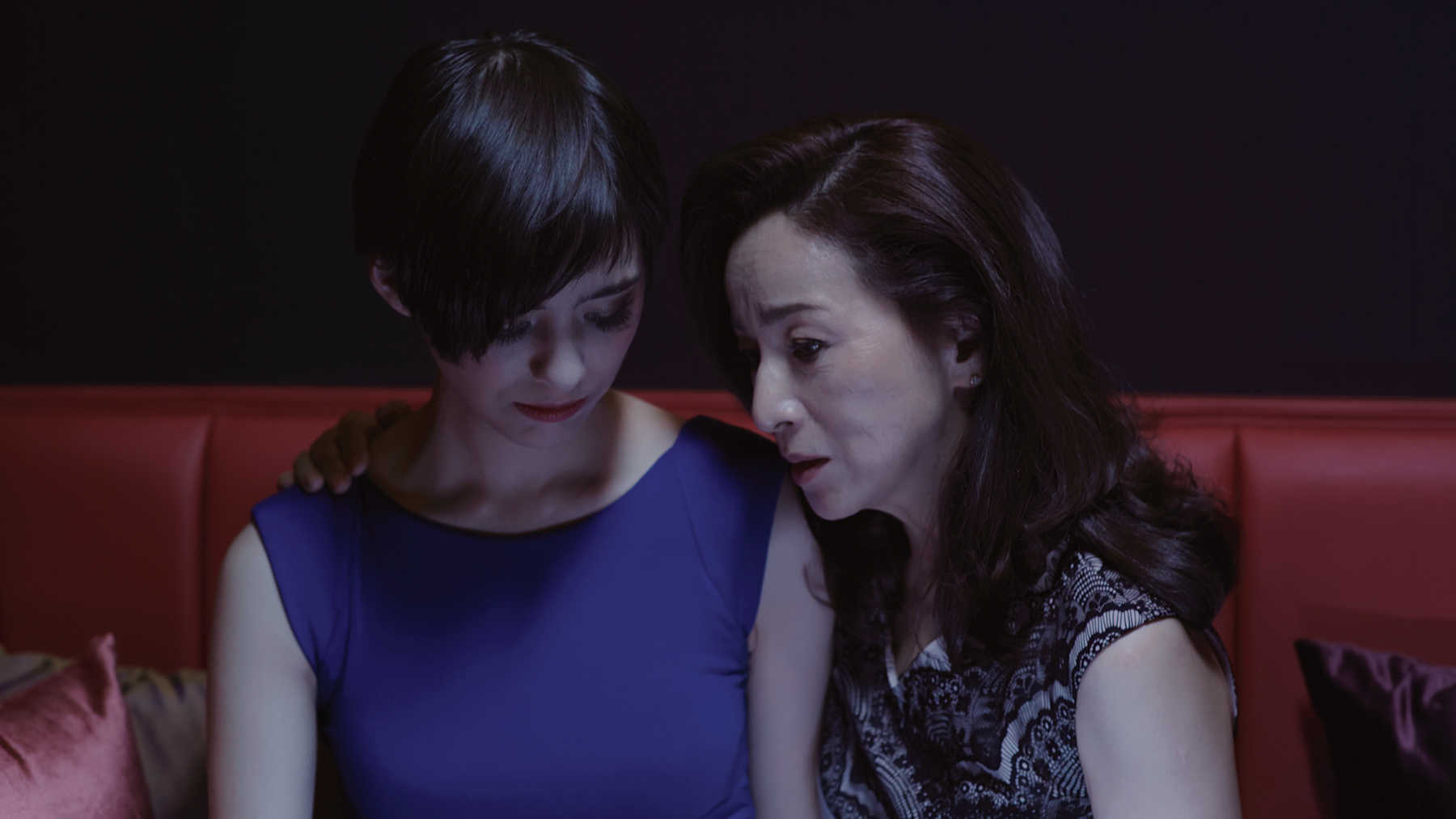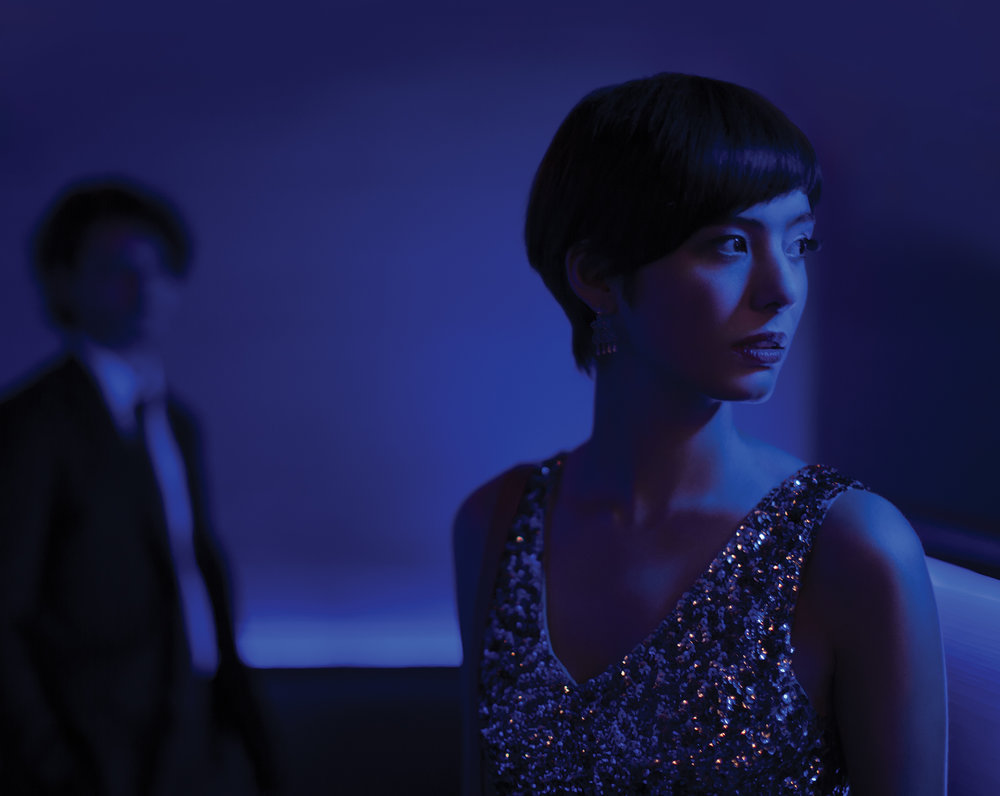Director Naghmeh Shirkhan’s MAKI just won her the best director award at CHELSEA FILM FESTIVAL. She was the ONLY female director to have a feature film showing at this year's festival. Set in the heart of New York City, MAKI is a modern love story with a dark twist, depicting a young Japanese woman’s coming of age. Maki (Naomi Sundberg) and Tommy (Julian Cihi) can no longer conceal their hidden affair once they learn she's pregnant with his child. Their charismatic and persuasive boss, Mika (Mieko Harada) steps in and takes control. The story unsettles as it unfolds, revealing each character’s true intent.
Born in Iran, Naghmeh Shirkhan moved to America with her family a year before the Islamic Revolution. Her father returned to Tehran in the hopes of resuming his career, while the rapidly ensuing Iran-Iraq war prompted her young mother to remain in America indefinitely. The immigrant experience of separation, displacement, and the struggles of starting anew are major themes in Naghmeh’s work. In 2010 her first arthouse feature, The Neighbor (Hamsayeh), hit the festival circuit to wide critical acclaim. Soon after, she began working on her second feature, Maki.
We had a chat with Naghmeh, here are the excerpts.
What inspired you to make this film?
I wanted to make a film about a young woman who finds herself in an untenable situation with nowhere to turn. I was influenced by Les liaisons dangereuse by Laclos. I also really wanted to try my hand at telling a visually captivating love story that didn’t end in typical Hollywood fashion.
What was the most challenging and most rewarding part of making this film?
The most challenging part of making this film was working on a very tight budget. But then again I’d say that was also one of the really rewarding aspects of making Maki, especially in Manhattan. You can do a lot with the current filmmaking technology and you don’t end up having to sacrifice quality. Another very rewarding thing was working with my talented cast. It was such a diverse cast. We had Japanese and Spanish and Swedish and African American and our crew was equally diverse both in gender and ethnic background. It was a phenomenal group of people.
Tell us about your experience at the Chelsea Film Festival.
I loved the Chelsea Film Festival. The founders, Ingrid Jean Baptiste and her mother Sonia, took such good care of all the filmmakers and panel moderators. The panels were insightful and informative. The festival feels fresh, youthful and edgy and I loved that.
How does being an immigrant affects you as a storyteller?
I’m not sure I would have become a filmmaker if I wasn’t an immigrant. I draw a great deal of inspiration from my background and the wanderlust that I developed as I searched for a place to fit it. I found that place in the world of independent filmmaking.
Who are your favorite filmmakers and why?
My favorite filmmakers are from the French Nouvelle Vague like Godard, Rivette, Varda and Chabrol. French New Wave represented a totally radical way of making and experiencing film. There was also an intimacy and urgency that resonates with audiences even today. They weren’t afraid to take chances and push the medium to a new place. I was also deeply influenced by Japanese filmmakers like Kurosawa, Ozu and Kinoshita. Their use of lenses and the economy with which they could set a scene really influenced my own filmmaking style.
What's your most favorite and least favorite thing about NYC:
My favorite thing about NYC is its energy, and it’s such an international city where people of all ethnicities, races and religions live together and learn from one another. I also love that it’s a Mecca for international art and cinema.
My least favorite thing is probably the insane amount of traffic these days. It makes shooting a car scene that much harder!
————
You can listen to the full chat/podcast of our conversation with Naghmeh below (updated 10/31).
Here’s the trailer for the film:



